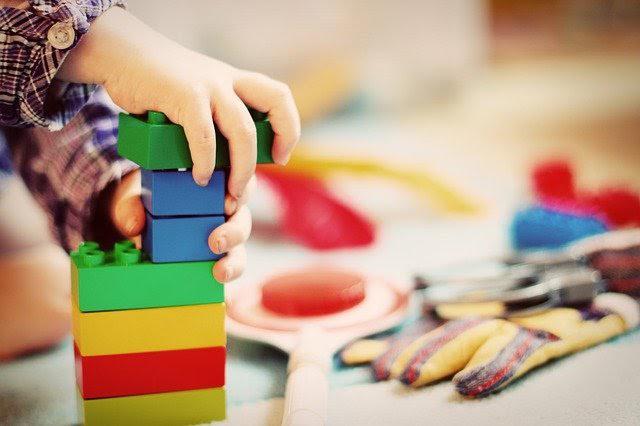What To Do If You Think Your Child May Be Transgender
When your child “comes out” as a transgender individual, you want to give all the support in the world. However, you might have feelings of doubt, confusion, and possibly grief for the son or daughter you raised from birth.
While those feelings are all valid, you need to do what is best for your child. In some cases, that includes supporting and accepting their gender identity. You must be there for your child, no matter what gender they prefer. Today, the world is starting to accept transgender individuals, but it is not easy for them. When you help with this stage of their life, you can make the difference between a miserable experience or a fulfilled life.
Does your child identify as the opposite gender? You can help them learn coping mechanisms to assist their transition during this challenging time by scheduling an appointment at Interpersonal Psychiatry!
How To Know If Your Child Is Transgender
Some experts are split on this subject. However, many say that a transgender child might wear the clothes of the opposite gender, play with toys associated with that gender, and make statements such as “I am a girl” or “I am a boy.”
According to the Human Rights Campaign, many parents will spot these signs around the age of four, while some children might not exhibit this behavior or make statements until six. The vast majority of transgender individuals might not identify with another gender until they are teens or adults.
Many children who have not reached puberty will show more social signs, such as changing behavior and selecting certain clothes. In some cases, the parent may elect to have a medical intervention, like hormone therapy, after puberty.
Related: Interpersonal Psychiatry – Blog

The World Is More Open To Transgendered People
In today’s world, society is more open to transgender persons. The American Psychiatric Association removed “Gender Identity Disorder” in 2013. Instead, this association now uses the term “Gender Dysphoria” to reference those whose gender identity is different from the physical body. Along with that, these classifications are not treated as mental illness.
More transgender celebrities have gained attention, such as Laverne Cox and Caitlyn Jenner. As you can tell, there is more acceptance in the world for those who identify as a transgender person.
However, bullying and ostracism are still commonplace for these children, and many school officials don’t know how to handle these situations. Children are often cruel to those who are different from them. GLSEN (Gay Lesbian Straight Education Network) states that 75 percent of transgender children feel unsafe in schools. About 50 percent say they are not allowed to use the pronoun that matches their gender identity. In about 70 percent of cases, these children have avoided using the school bathroom to prevent ridicule.
In addition to that, 45 percent of transgender people have attempted suicide. There is some good news. Children who transitioned with the support of their families had lower rates of anxiety and depression.
With all these facts, you are probably worried about the mental health of your children. If your child has identified as transgender, here are a few things you can do to assist with the transition, along with handling the outside world and school.
Related: Interpersonal Psychiatry – Services
Accept Your Child’s Identity
When your child discusses the issues of transitioning, you don’t want to dismiss it as a “passing phase.” According to many doctors, only a small percentage of trans children will change their minds about their identity. If your child is identifying as trans, there is no harm to accept their identity choice.
Always Follow Your Child’s Lead
Stores are filled with stereotypical toys and clothes for boys and girls. You should never make an assumption about your child. In some cases, you can choose gender-neutral clothes and toys for your child to help with the transition period.
Don’t Misgender Your Child
If your child is using another name, you never want to misidentify them. There is a certain term called “dead-naming.” This happens when you refer to the child by their previous name. In some cases, you will do that inadvertently. If that occurs, just apologize for the mistake and correct yourself.
Never “Out” Your Child
If your child is old enough, let them decide who to tell about their identity. You always want to make sure that they are ready for the world to know about their choice. Those who break the news to grandparents, friends, and teachers, you must give them time to react and process the information. Keep in mind that not everyone will be receptive to this decision.

Don’t Assume Your Child Needs Therapy
When your child comes out as transgender, your first thought might be scheduling an appointment with a therapist. However, remember that transgender is not considered a mental illness. You can book an appointment to help your child adjust to their new identity and help face some of those challenges of the world.
Develop Your Child’s Coping Mechanisms
In today’s world, some people will question their decision or be critical of their choice. Your child needs to develop a strategy to handle these types of people.
Related: Interpersonal Psychiatry | Deep TMS
Assess Their School
In some situations, a family with a transgender child will only tell a few select individuals. However, it can be an emotional drain on the child. For those families where the child has been known to the community since birth, you might want to address these issues with the whole school. Along with that, the bathroom issue will be your biggest concern, especially if your child does not feel comfortable with the current situation.
Unconditional Love Is Vital
The most important piece of advice is to love your child. Yes, acceptance will take time, but you should always let your child know that you love them.
When your child identities as transgender, it can be a difficult time. With this advice, you will help everyone to feel accepted and loved.
If your child is having trouble dealing with their gender identity, please schedule an appointment with Interpersonal Psychiatry!

